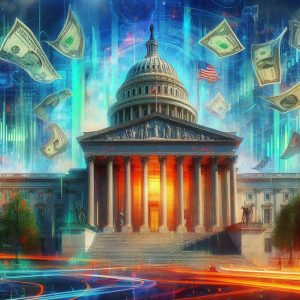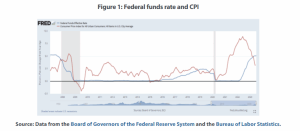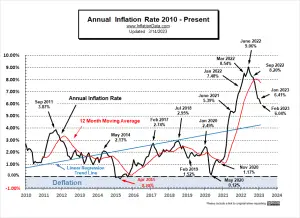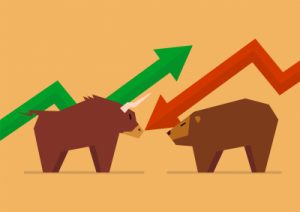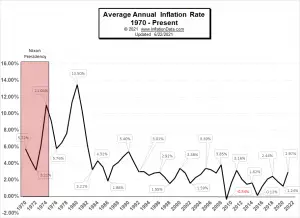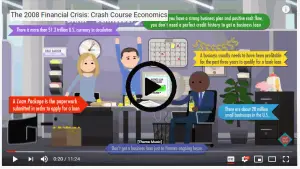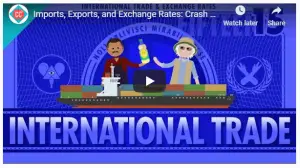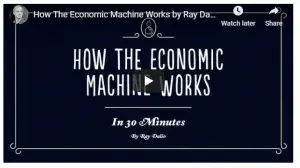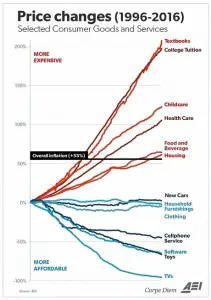I recently saw this question on Quora and thought it was interesting. It made me think. Does the President control inflation? My first thought was that inflation is controlled by the FED printing money or perhaps by Congress spending money, but how much difference does the President make? Then I read the following response by Valerie Rhea who graciously gave me permission to reprint her response here. Valerie is a Thirty-something PhD economist, and former military pilot, with a law degree. So, she has an interesting background and is well qualified to answer this question. Here is her response. ~ Tim McMahon, editor Inflation is always and everywhere a monetary issue" If … [Read more...]
Can the FED Engineer a “Soft Landing”?
The ultimate dream of the Federal Reserve and those who believe in the FED's omniscience is for them to engineer a soft landing, i.e., curbing inflation without sending the economy into a deep recession. The idea is that if they raise rates just enough, but not too much, they can find the "Goldilocks" middle ground that will magically cool inflation just enough. In today's article, Mihai Macovei explains why that is more of a fairytale than Goldilocks herself. ~Tim McMahon, editor. There Is No Fed Magic Trick to Achieve a Soft Landing Economic growth in the United States accelerated to a 2.4 percent annualized rate in the second quarter of 2023, picking up from 2.0 percent in the first … [Read more...]
Stock Market Ignores Lower Inflation in February
The Bureau of Labor Statistics reported that Annual Inflation fell from 6.41% in January to 6.04% in February Monthly inflation was 0.56% for February 2023, compared to 0.91% in 2022. Despite the significant drop in inflation the market was more concerned with bank failures so, there was no inflation rally. February Inflation Summary: Annual Inflation fell from 6.41% to 6.04% CPI Index rose from 299.170 to 300.840 Monthly Inflation for February was 0.56% Next release April … [Read more...]
How Loose Monetary Policies Cause Recessions
Advocates of Keynesian economics believe the Federal Reserve should pursue policies that will prevent the possible decline of the economy into a liquidity trap. But what is a liquidity trap? Economic activity often is presented in terms of a circular flow of money. Spending by one individual becomes part of the earnings of another individual, and spending by another individual becomes part of the first individual’s earnings. Recessions, by this thinking, occur because consumers—for whatever reason—have decided to cut spending and increase their savings. For instance, if people become less confident about the future, they are likely going to lower their outlays and hoard money. … [Read more...]
What is the Reverse Wealth Effect and Why Does the FED Want It?
To understand the reverse wealth effect first we must understand the economic concept of the "Wealth Effect". According to Economics Help the "Wealth Effect" occurs as "Rising personal wealth has a positive effect on consumer spending". In other words, when people feel richer they spend more. The Impact of Increasing Wealth As people feel richer they: Are more willing to spend, borrow and take risks. Re-mortgage and withdraw equity. Invest more resulting in even higher income from dividends, rent, or interest. During a period of rising wealth, we may see a fall in the savings ratio (i.e. they spend more and save less because they feel confident in their income stream). … [Read more...]
How Does a Country “Export” its Inflation?
This question is interesting because most countries can’t just export their inflation because their currency is exclusive to their country. However, the U.S. is in the unique position of being the “reserve currency” of the world. In addition, several countries like Panama, Ecuador, and Zimbabwe, actually use the U.S. dollar as their currency and don’t even have their own currency at all. So the U.S. currency has a greater than normal influence on other country's economies. Exporting inflation is a Government's dream scenario. If they could print all the money they wanted and not suffer the consequences of their actions, it would be a dream come true for politicians. Printing money boosts … [Read more...]
The 2008 Financial Crisis
Approximately every 50 to 80 years the world experiences an economic meltdown of catastrophic proportions. The one most people think of is the “Great Depression” of the 1930s. But the more recent example is the 2008 Financial Crisis. This crisis had the potential to be as bad as the Great Depression but Government action i.e. Unemployment Insurance and massive liquidity pumping was able to mitigate the effects somewhat. However, even with those actions, U-3 unemployment reached 10.6% and U-6 unemployment which is more like the measurement used in the 1930s reached 18%. What Caused the 2008 Crisis? The 2008 crisis is the culmination of a series of missteps and failed legislation. … [Read more...]
Imports, Exports, and Exchange Rates
The world has a global economy. It’s no longer possible to survive as an isolationist. Macroeconomics will tell you that it is most efficient to have each country produce what it can produce cheapest so that all may prosper due to lower-cost goods and increased production. Not surprisingly, the U.S. is the world’s largest importer and also it is no surprise that we import a lot of stuff from China. According to the U.S. Census bureau, in 2018, we imported $539,675.6 Billion worth of goods from China while only exporting $120,148.1 Billion to China for a total trade of $659,823.7. So, in many ways Canada is actually a better trading partner than China since although we imported $318,824.2 … [Read more...]
How the Economy Works
The economy might seem complex, but it is actually based on three simple processes that are repeated over and over again. These processes are based on human nature and the fact that most people tend to act in their own best interests. The following information is based on a presentation by Ray Dalio. Who is Ray Dalio? According to Wikipedia, Raymond Dalio was born August 8, 1949 and is an American billionaire investor, hedge fund manager, and philanthropist. Dalio is the founder of investment firm Bridgewater Associates, one of the world's largest hedge funds. Bloomberg ranked him as the world's 58th wealthiest person in June 2019. https://youtu.be/PHe0bXAIuk0 The Three Main Forces of … [Read more...]
Cumulative Inflation By Category 1996-2016
I recently came across an interesting article by Paul O'Brien on Quora. For those who may not know, Quora is a site where individuals can ask questions and get a variety of different answers from people in the community (hopefully subject matter experts). I have been participating in answering questions on Quora for a few years now. But I particularly liked this answer and thought I would share it with you. Although the original question was "Is capitalism failing? Why or why not?" Paul chose to answer based on the inflation rate of various categories of consumer goods. ~Tim McMahon, editor Is Capitalism Failing? Why or Why Not? By Paul O'Brien Let’s run down … [Read more...]

